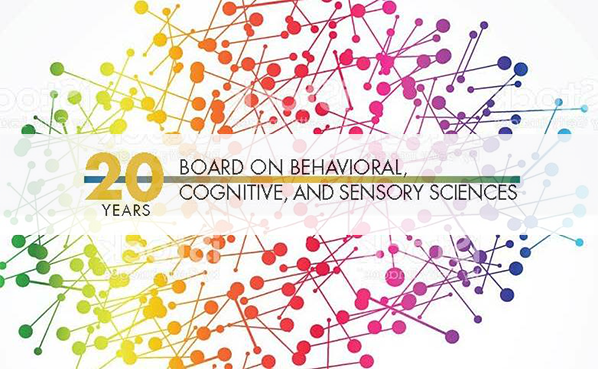APS Sponsors NAS Behavioral Sciences Board’s 20th Anniversary Celebration

One of the foremost US advisory groups on psychological and other behavioral sciences celebrated its 20th anniversary on October 19, 2017, and APS was among the organizations helping to mark the celebration.
The National Academy of Sciences’ Board on Behavioral, Cognitive, and Sensory Sciences (BBCSS) held its anniversary symposium at the National Academies in Washington, DC, with support from APS and several other scientific organizations and agencies.
APS Past President Susan Fiske, who is also BBCSS Chair, moderated the anniversary symposium. During the event, many notable APS members presented overviews of their research. APS William James Fellow Michael Posner (University of Oregon and Weill Medical College of New York) discussed the development of human brain networks; James McKeen Cattell Fellow James S. Jackson (University of Michigan) presented findings on the intersection of chronic stress, health, and race; and APS Fellow Laura L. Carstensen (Stanford University) talked about happiness, health, and aging.
Other participants included APS Fellows Nancy Kanwisher of the Massachusetts Institute of Technology and Janice Kiecolt-Glaser of The Ohio State University.
A highlight of the symposium was the concluding session, “Life, Liberty, and the Pursuit of Happiness,” a conversation with APS Fellow Daniel Gilbert (Harvard University) and columnist David Brooks of The New York Times.
Throughout the symposium, the participants discussed the future of behavioral and related sciences. In a session called “The Limitless Future,” Fiske, a psychology professor at Princeton University, led a conversation about important new directions for the behavioral sciences.
Panelists agreed that integrative science is a new frontier for science. Fay Lomax Cook, Assistant Director for Social, Behavioral, and Economic Sciences at the National Science Foundation (NSF), highlighted the developing importance of integrative, convergent science which brings together behavioral scientists and researchers from other fields to solve important issues.
“At the beginning of a social problem or a scientific question, how will social scientists and behavioral scientists and engineers and computer scientists and biological scientists talk together about problems?” she queried.
The eminent scientists also discussed the importance of the application of behavioral science.
“We have to translate some of the findings in psychology to public policy,” said Posner, referring in part to psychological scientist Crystal Hall’s presentation on how she applies behavioral science to improve government programs and policies within the US General Services Administration Office of Evaluation Sciences.
The meeting concluded with remarks from representatives from agencies that support behavioral science, including NSF and the National Institute on Aging, National Cancer Institute, and the National Institute of Health’s Office of Behavioral and Social Sciences Research.
BBCSS is part of the National Academy of Sciences’ Division of Behavioral and Social Sciences and Education. It has a number of primary goals that include:
- engaging researchers in behavioral science in major national policy issues;
- promoting cross-disciplinary inquiry into complex scientific questions; and
- providing a forum for deliberation among researchers, the public, the media, Congress, professional associations, the National Science Foundation, and other federal agencies.
Researchers agreed that many important questions remain unanswered in the behavioral sciences, but psychological scientists and their colleagues won’t ever cease to find some answers.
“I study stereotypes,” Fiske said, “and when it comes to science, one of the words that’s really distinct to us is curiosity.”





APS regularly opens certain online articles for discussion on our website. Effective February 2021, you must be a logged-in APS member to post comments. By posting a comment, you agree to our Community Guidelines and the display of your profile information, including your name and affiliation. Any opinions, findings, conclusions, or recommendations present in article comments are those of the writers and do not necessarily reflect the views of APS or the article’s author. For more information, please see our Community Guidelines.
Please login with your APS account to comment.